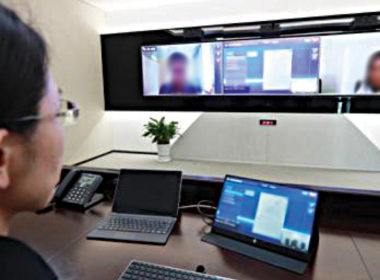Snapshot
- In a number of recent cases, the NSW Supreme Court and Federal Court of Australia refused to permit cross-examination by video link.
- The court refused to permit cross-examination by video link where it was satisfied that it would create a risk of unfairness or prejudice, and this risk was not outweighed by countervailing considerations.
- The cases demonstrate that unfairness or prejudice is likely to occur where a witness’ credit, demeanour and evidence are critical in the circumstances of the case.
The testing of a witness’ evidence by cross-examination is an essential feature of the adversarial trial. The demeanour and body language of key witnesses in the box can make or break a party’s case.
COVID-19 restrictions have forced the courts to adapt many aspects of the trial process. As online hearings have become the norm, one question the courts have needed to consider is whether to allow witnesses to be cross-examined by video. That question typically arises in the context of applications for the adjournment of trials and applications for witnesses to give evidence by video. The question generally turns on whether allowing cross-examination by video would cause unfairness or prejudice.
There are advantages to cross-examining a witness in person – they include the added solemnity or gravity of the occasion, which reminds witnesses of their obligations; the greater ease of developing chemistry between counsel, witness and the bench; and (traditionally) a better environment for the trier of fact to observe witnesses.
This article will focus on Federal Court and Supreme Court of NSW cases in which the prospect of cross-examination by video was found to result in unfairness or prejudice. It is important to note that the question of cross-examination by video was not the only issue considered in many of these cases – but it was nevertheless an important one. In each of these cases, the credit and demeanour of particular witnesses, and the nature of their evidence, were crucial.
GetSwift and Capic
Before we turn to the above mentioned cases, it is worth noting two early examples in which the Federal Court did not find that cross-examination by video would result in unfairness or prejudice: Australian Securities and Investments Commission v GetSwift Limited [2020] FCA 504 (‘GetSwift’) (9 April) and Capic v Ford Motor Company of Australia Limited (Adjournment) [2020] FCA 486 (‘Capic’) (15 April) (See further: Dernikovic & Wright, ‘Adjournments and e-trials in the COVID-19 context’ Law Society of NSW Journal, Issue 67 June 2020, 68-70).
Both GetSwift and Capic helpfully identified a range of factors that may be relevant in adjournment applications, of which unfairness or prejudice caused by cross-examination by video was only one.
In considering the risk of prejudice, Lee J in GetSwift said that receiving evidence by video was suboptimal (at [25]); but, in his Honour’s experience, there was no diminution in the ability to assess a witnesses’ demeanour, and in some respects it was enhanced by the ability to observe a witness more closely (at [33]). Similarly, in Capic, Perram J recognised that video evidence tended to reduce chemistry and formality, however his Honour said his perception of the witness’s facial expressions was actually much greater than in court (at [19]). The adjournment applications were denied in both cases.




